My Family’s Harrowing Journey from War-Torn Kyiv to Safety in Ireland
February 2024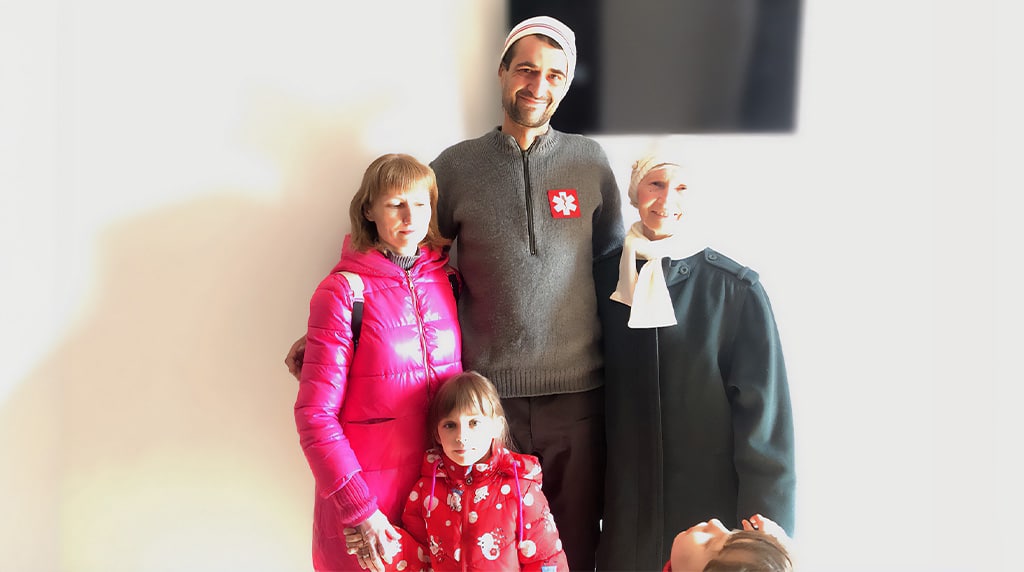
As we approach the two-year mark of Russia’s full-scale invasion of Ukraine, we turn our focus back to February 2022 to spotlight the journey of one family, whom we had the privilege of helping. This family, grappling with the added challenge of caring for a child with severe autism, found themselves navigating the perils of a war-torn Kyiv in search of a safe haven.
By Anna Gogol, written shortly after Anna’s family safely arrived to Ireland (2022)
In the quiet hours before dawn on 24 February 24 2022, our family of four – a couple and twin daughters – were jolted awake in our Kyiv home by the distant sounds of explosions. My husband tried to reassure me, suggesting they were just fireworks for a birthday celebration, but a deep sense of foreboding urged me to check in with relatives. Unable to reach anyone, the reality dawned on us: war had arrived in Ukraine.
A friend’s early morning call confirmed our worst fears: Kyiv was under bombardment. Panic engulfed us as we realised the magnitude of what was happening. The kids were sleeping peacefully in their beds. And we were terrified, not understanding where to run or what to do next.
A bit later, we turned on the TV. Our President’s address confirmed our worst fears: Russia had launched an attack. Cowardly, early in the morning, without a declaration of war, missiles and bombs flew towards sleeping peaceful cities.
Our life was now divided into a ‘before’ and an ‘after’.
Unbelievable. Just four days ago, we celebrated our twins’ seventh birthday. Now, the children’s centre, where we celebrated, lay in ruins, leaving us with nothing but photographs of a past that seemed a world away.
Adapting to war’s harsh realities, we learned to cope with air raids and emergency preparedness. We packed essentials: documents, medicines, food, water, warm clothes, and a kettle, preparing for the worst.
It all felt like a nightmarish dream, an unbelievable horror unfolding in real-time.
The city plunged into chaos. The once-familiar streets of Kyiv transformed into scenes of panic, with traffic jams blocking escape routes and Russian forces targeting fleeing civilians, even those marked with “Children”.
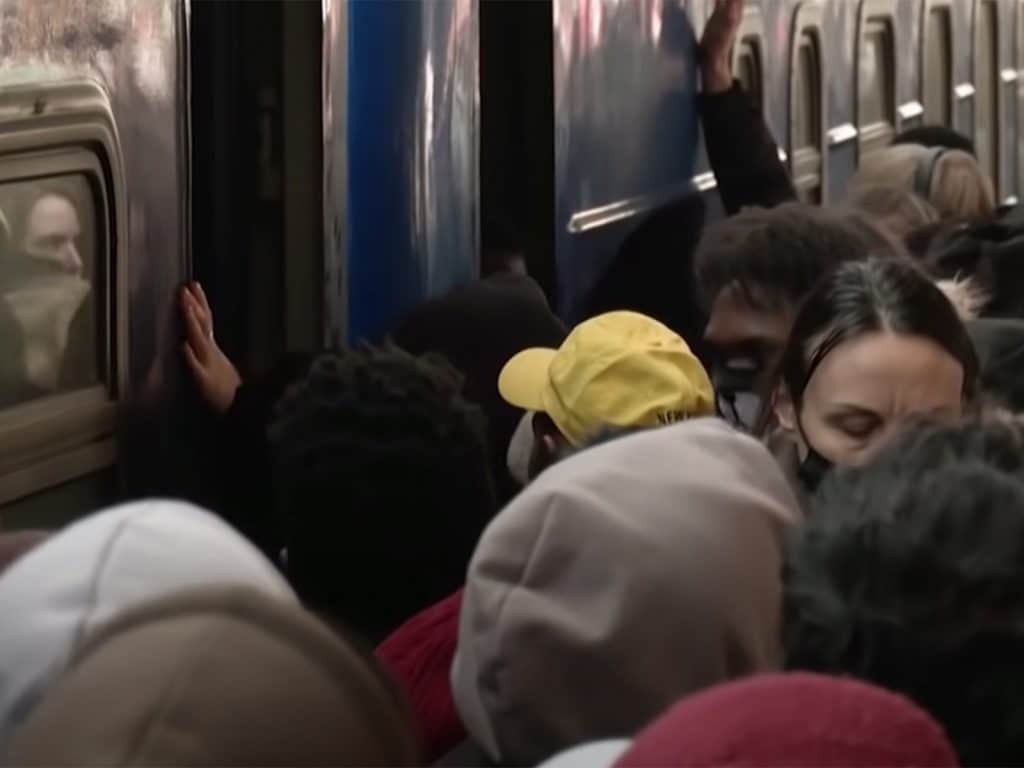
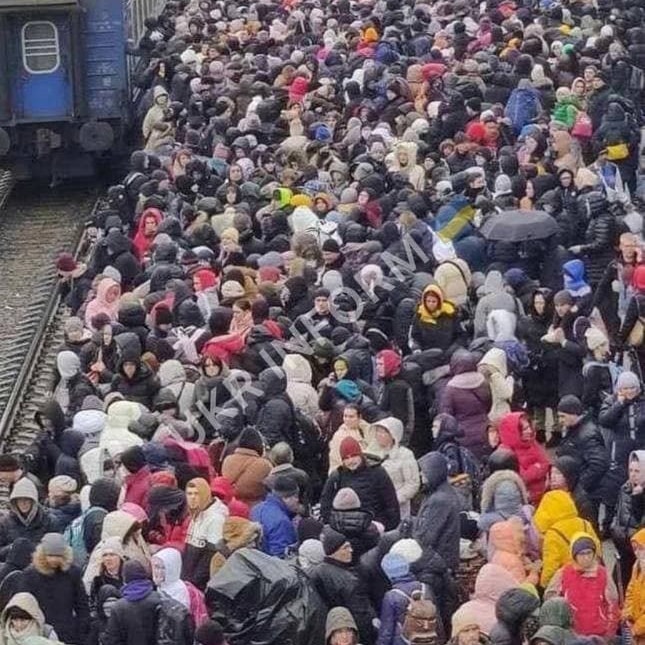
(Kyiv-Pasazhyrskyi railway station)
The omnipresent sound of air raid sirens became our grim soundtrack, compelling us to seek shelter repeatedly. For our family, particularly with Zoryana’s severe autism, each alarm signified an insurmountable challenge – the mere act of dressing her for a simple walk was a struggle, let alone fleeing to a bomb shelter amidst chaos and unfamiliar faces.
We had to stay at home, risking our lives, exposing our children to danger, hoping somehow it would be alright.
The emotional toll was immense. I grappled with guilt and despair, torn between the needs of my two daughters and the harsh reality that one child’s condition was jeopardising the safety of the other. We felt utterly trapped, with no apparent escape.
As the city emptied of its children, it seemed we were the only family left behind.
Weeks of tension passed. Food and medicine became scarce, and daily life in Kyiv grew increasingly perilous. As supplies dwindled, grocery stores began to close, and long lines formed for basic necessities like bread. Pharmacies shut their doors, and essentials like diapers became impossible to find. My husband lost his job as businesses shuttered, and medical care became solely focused on treating the injured, leaving the general population’s health needs unaddressed. The city’s infrastructure, supporting a population of nearly three million, was in shambles.
Sleep eluded me, as I lay awake each night, gripped by the fear of impending danger.
We eventually decided to move to a suburb. The journey there was fraught with danger; roadblocks were a common occurrence, and the evidence of war was everywhere – burnt-out cars and military wreckage, a stark contrast to the area’s usual array of restaurants and leisure spots. We hoped it would be safer, but the war followed us there too. My husband had to return to Kyiv to care for his ailing mother, leaving me alone with the children in a city under siege.
My greatest fear was that our building would be targeted, leaving us trapped under the rubble.
One evening, in a moment etched forever in my memory, I saw a missile heading straight for our building. We were in the kitchen, the lights off due to the curfew. In a panic, we fled downstairs – I carried Zoryana, and Zlata followed closely. Outside, amidst the chaos and fear, we learned that the missile had been intercepted mid-air by air defence. It was a narrow escape.
The city was now mostly inhabited by those who found it difficult to leave – mothers with young children, the disabled, the elderly.
Men had largely gone to join the fight. Stores operated sporadically, and essential supplies like food, gasoline, and medicine were scarce.
Stray dogs and cats, abandoned by fleeing owners, roamed the streets. Community groups circulated requests to shelter these often expensive and purebred pets, left to fend for themselves. Reports of torture, abuse, and murder of civilians were rampant, with even the forests being mined to prevent escape. The necessity to leave grew increasingly urgent.
In desperation, I reached out to EURORDIS for help on how to evacuate with a disabled child.
For two days, we attempted to leave but to no avail. My mother, who had joined us later, helped with the children. We were also accompanied by my elderly, ailing aunt.
That’s when the suggestion to escape by train came. Desperate for safety, we decided to move towards our relatives, closer to Ukraine’s western border, believed to be safer. Our journey involved multiple train rides, including local and long-distance ones. We did our best to keep Zoryana distracted, but she remained visibly anxious, running around the carriage restlessly.
Our arrival at the destination was shrouded in the darkness of late night. The station platform was engulfed in silence. A patrol unit, armed with flashlights, approached us, advising that movement around the city was prohibited and we would have to spend the night at the station. The day’s ordeal, particularly taxing with an autistic child, left us all exhausted. Zoryana’s screams, her tears, and her attempts to flee had drained us. The prospect of spending the night at the station, particularly as the cold had set in and hunger gnawed at us, seemed daunting.
However, in our dire situation, the soldiers took pity. They arranged for a military vehicle to transport us to a residence, wishing us well in our journey. To us, this gesture was nothing short of a miracle. Finally, we found ourselves in a place that was warm, kind, and safe.
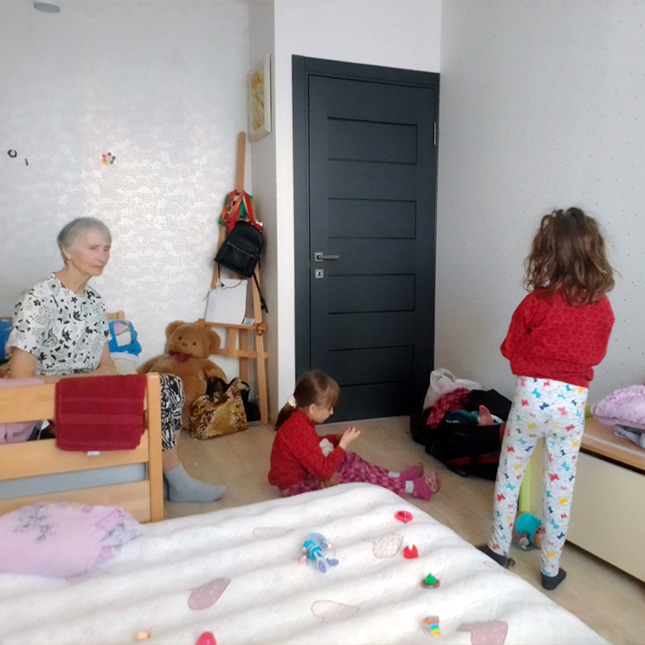
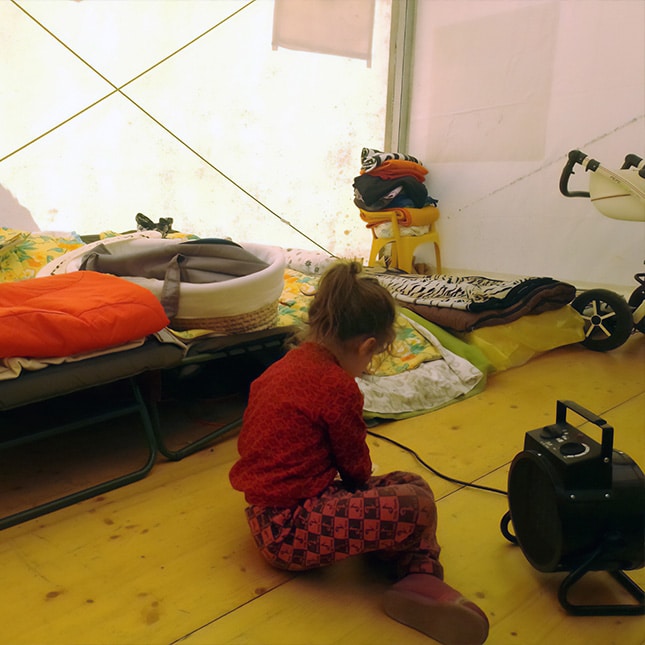
(On the left: the family in Lviv that hosted Anna and her family; on the right: the refugee camp in Poland where Anna’s family stayed after crossing the border)
Our stay in that small town lasted two days. The air raid sirens were a constant reminder of the war raging above us. Bombers flew regularly overhead, enforcing the stringent curfew. The internet, a lifeline to the outside world, was cut off, but we managed to get by with the limited food supplies brought in by the local villagers.
It was then that EURORDIS reached out, offering evacuation support and assistance in relocating abroad. The decision was pressing and overwhelming, compounded by the logistical challenges of travelling with an autistic child and the uncertainty of what awaited us.
The journey to the Polish border was fraught with challenges – checkpoints at every turn, an eight-hour drive through a landscape marred by war, yet under Ukrainian control. The military, understanding of our plight, expedited our passage. Driving us were Arno and Sam – our unsung heroes. Navigating through a war-torn landscape, under constant threat, in an unfamiliar country, without a common language, their selfless act of aiding families like ours was nothing short of heroic.
The journey with Zoryana was particularly trying. Her discomfort and distress were palpable, a sentiment any parent of a child with similar conditions would understand all too well. The four-day journey was an ordeal we will never forget.
Along the way, we were sheltered by two families, one from Ukraine and another from Poland. Their hospitality and understanding of our plight were deeply moving. I never expected such empathy and kindness from complete strangers. My daughter’s behavioural issues, usually a source of embarrassment, were met with nothing but sympathy.
Late at night, we finally arrived in Ireland, a country chosen deliberately after years of researching treatment options and rehabilitation facilities for autism.
We were accommodated in a hotel near the sea, surrounded by serene conditions and compassionate people eager to assist. Our medical evaluations are forthcoming, and we have visited a school willing to work with Zoryana, enrolling her in a special class.
We are profoundly grateful to EURORDIS for their help and to everyone who responded to our plight with empathy and kindness.
While we are relieved to be in a safe haven, our hearts remain heavy with the hope for an end to the war, a longing to return to Ukraine. We dream of a time when peace and tranquillity are restored, when the cities are rebuilt, and the land is freed from occupation.
- Read the second part of Anna’s story “Our New Chapter: Finding Home in Ireland“
